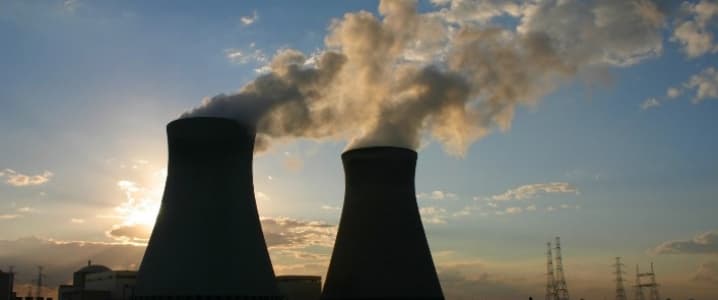China General Nuclear Power Corp. has been indicted by the FBI on allegations that it has been trying to illegally acquire nuclear technology secrets from its U.S. consultants. According to the indictment, the country has been working with said consultants for years – and has been pressuring them into handing over sensitive trade information – pursuing Beijing’s international nuclear expansion ambitions.
Last month, Britain’s PM Theresa May postponed the go-ahead for the construction of the country’s biggest NPP in several decades, Hinckley Point, citing concerns about Chinese interference in British national security. The Chinese company behind Hinckley Point is China General Nuclear Power Corp.
These two cases have highlighted China’s growing ambitions in the nuclear field – not just domestic but international. They have also highlighted the inherent suspicion that Western governments feel towards China. In the case with the U.S. consultants, it’s very likely that the charges are legitimate, despite CGNP issuing a statement that said it “always sticks to the principle of following laws and regulations.”
In the UK case, however, a Theresa May adviser, Nick Timothy, said last year that China’s involvement in Hinckley Point would allow Beijing to “shut down Britain’s energy production at will.” A statement like this suggests an unhealthy degree of paranoia on the part of Timothy and like-minded officials, especially given that the Chinese company has a minority interest of around 30 percent in the project, and the operator is French EDF.
Shortly after the surprising postponement, Theresa May assured China’s President that Britain wants strong relations with China and that the country “looks forward to strengthening co-operation with China on trade and business and on global issues."
The fact remains, though, that China has very aggressive international nuclear ambitions. The country’s state-owned nuclear power companies have been working with international leaders such as France’s Areva and EDF, and Westinghouse, on developing its own nuclear reactor that Beijing hopes to start exporting on a large scale.
The reactor in question is Hualong One, and it has been exported to two countries to date, Pakistan and Argentina. Both deals include financing for the construction of the power plants from Chinese sources, which is the model China used to get into road construction and other infrastructure in Africa an the Middle East, AP notes.
CGNP’s investment in the $24-billion Hinckley Point is yet another aspect of China’s international nuclear ambitions. Related: Why Trump’s Energy Plan Isn’t Waterproof
Experts, however, are wary of the success of this ambition. Many warn that China has yet to win the trust of its potential clients – even though no Chinese nuclear plant has so far made headlines by causing a disaster, general sentiment towards nuclear energy is suspicious, and as a result, safety standards are very stringent. In addition to this stringency, they also vary from country to country, so Chinese reactor builders will have to be very flexible in their offer if they want to convince their potential clients to become actual ones.
What’s more, this market is extremely competitive, and there are clear global leaders, such as the aforementioned French and U.S. companies. These companies have the experience, the track record, and the reputation that ensure their place at the top. China lacks all of these, so pushing into the international nuclear reactor market may prove difficult.
Still, it has enough to do at home, with 20 reactors in construction and more planned in order to raise the country’s nuclear generation capacity to at least 58 GWe over the next five to six years, and further to 150 GWe by 2030. Nuclear is seen as the cleaner alternative to coal-fired power plants, along with renewables such as solar and wind.
ADVERTISEMENT
By Irina Slav for Oilprice.com
More Top Reads From Oilprice.com:
- Has The Gulf Of Mexico Fallen Out Of Favor With The Oil Majors?
- Dakota Access Pipeline Is Set To Become The Second Keystone XL
- Forget Driverless Cars – Driverless Air Taxis Are The Future


















